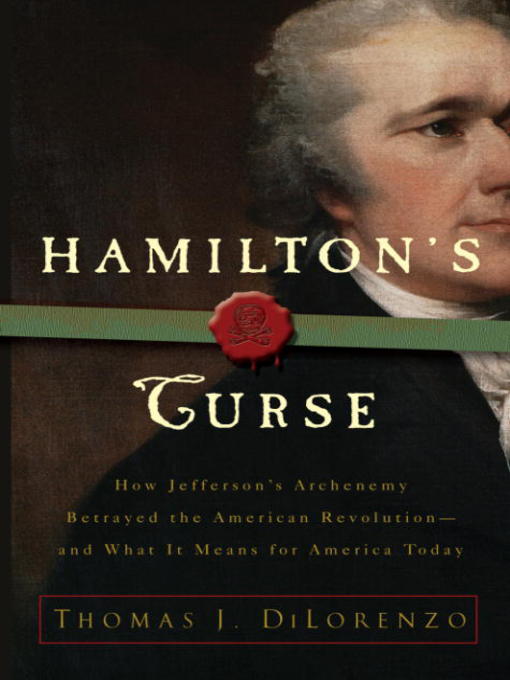
Hamilton's Curse
How Jefferson's Arch Enemy Betrayed the American Revolution—and What It Means for Americans Today
- اطلاعات
- نقد و بررسی
- دیدگاه کاربران
نقد و بررسی

November 1, 2008
Recent scholarship has lauded Alexander Hamilton as one of the most important and influential of the Founding Fathers. DiLorenzo (economics, Loyola Coll.; "Lincoln Unmasked") sets out to challenge this assumption in a revisionist examination of Hamilton's political and economic ideas. Writing from the perspective of a Jeffersonian, DiLorenzo makes the case that Hamiltonian concepts have been directly responsible for such perceived ills as a big, corrupt, unwieldy federal government; the boom-bust economic cycle; overtaxation; national debt; American hegemony; and an incestuous relationship between big business and big government. Specifically, he blames the Hamiltonian philosophies of a strong central government, a state-run bank, protectionist trade policies, government-subsidized industries, and centralized economic planning. DiLorenzo argues that these policies are in direct opposition to the intent of the American Revolution and the U.S. Constitution, which sought to limit the control of a central government in favor of personal liberties and states' rights. Controversial and provocative; recommended to public and undergraduate libraries for its alternative view of Hamilton from the image in popular biographies such as Ron Chernow's "Alexander Hamilton".Robert Flatley, Kutztown Univ., PA
Copyright 2008 Library Journal, LLC Used with permission.

November 15, 2008
Perhaps because he did not rise to the office of president, Alexander Hamilton is a relatively neglected figure in the pantheon of our Founding Fathers. In recent years, however, there has been a resurgence of interest and admiration for him, and partisans of both the Left and Right have claimed him as their own. Describing himself as a traditional conservative rather than a neo-con, the author blames Hamilton for the enshrinement of many ills that plague our nation today, including a too-powerful executive, a weakened federal structure, a bloated national government, and imperial overreach in foreign affairs. DiLorenzo attacks Hamilton for having a few household slaves, while giving Thomas Jefferson (who owned more than 200 slaves) a pass. Still, DiLorenzo hits home with some charges: arrogant, and like many self-made men, Hamilton was contemptuous of those less talented. A strident but generally well-argued invective.(Reprinted with permission of Booklist, copyright 2008, American Library Association.)




دیدگاه کاربران